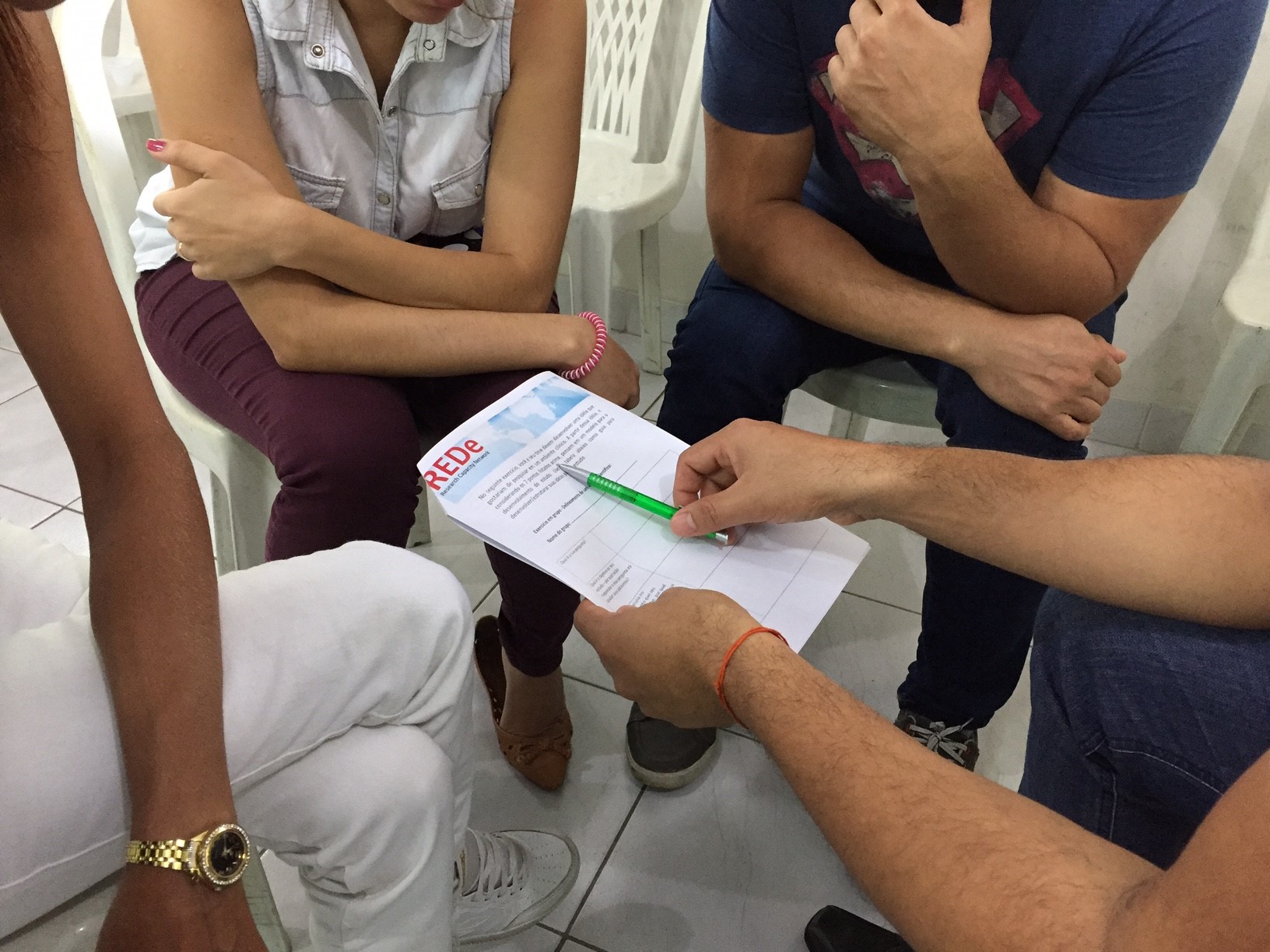
This article is part of the network’s archive of useful research information. This article is closed to new comments due to inactivity. We welcome new content which can be done by submitting an article for review or take part in discussions in an open topic or submit a blog post to take your discussions online.

The REDe network reached a key milestone last month holding a series of workshops in Fortaleza and São Paulo for the first time. These workshops were attended by members of the ZIKAction study teams, and healthcare workers from the three levels of health care provision.
These workshops were part of a weeklong visit by the REDe team that included meetings, talks and visits to health care providers in Fortaleza and São Paulo. There were four main objectives to these activities:
- To support the ongoing Zika studies in Fortaleza,
- To introduce REDe, and establish working relationships with healthcare workers involved in all levels of clinical care,
- Identify common knowledge gaps and needs that prevent the development of clinical research by frontline healthcare workers,
- To discuss how more locally-led research studies could be supported and enabled in the wider region.
The following is a summary of the activities developed during the REDe team visit.
Tuesday 11th July 2017
Name of Hospital: Hospital Geral Dr. César Cals, Fortaleza
Meeting with the ZIKAction study team
Research skills sharing workshop and an introduction to REDe and The Global Health Network. This was a busy event with over 30 attendees, coming from the most diverse background such as experienced researchers and professors, health care practitioners and undergraduate students.
We also had a meeting with the Regional Secretary of Health Coordinator and the Zika Study Team to strengthen work collaborations.
Wednesday 12th July 2017
Name of Hospital: Hospital São José, Infectious Disease, Fortaleza
Research skills sharing workshop and an introduction to REDe and The Global Health Network. Attended by 21 health care practitioners, social workers and undergraduate students.
Visit to the Federal University of Ceará (UFCE) to meet the Dean, and discuss potential collaborations. We agreed on having an online conference with researchers and professors to introduce The Global Health Network, and the online contents that could be used as an extra tool to help training students on developing research skills in clinical settings.
Thursday 13th July 2017
Visit to Hospital Albert Sabin – the regional Reference Centre for treatment of children affected by the congenital Zika syndrome, with Dr André Pessoa. We discussed the potential for sharing methods and data capture standards with other research groups where Zika represents a threat.
We learnt about the recent upsurge in Chikungunya virus infections in Fortaleza, and strategised a work plan to engage and involve all the other Zika researchers through the three EU Zika consortia and REDe.
We had a “Research skills sharing workshop and an Introduction to REDe and The Global Health Network” at the Regional Secretary I. The session was attended by 18 health care practitioners.
In the afternoon, we had a focus group discussion on clinical research capacity development in Hospital Geral Dr. César Cals with key health worker groups (physicians, nurses, social workers).
Friday 14th July 2017
We visited Hospital Santa Casa de Misericórdia in São Paulo, where we presented REDe and The Global Health Network to the researchers involved in the studies coordinated by ZIKAction, physicians and medical science students.
In the afternoon, we visited the Hospital Geral in Jundiaí, where we presented the Global Health Network and REDe to an audience of over 30 health practitioners and medical sciences students. We had a fruitful discussion on the potentialities of the platform to help training, building research capacity, and implementing clinical research on the day to day of health care practitioners locally.
Special thanks to Dr Roberio Leite, Andre Pessoa, Thais Falcao and all those involved with organising and hosting the REDe team - Dr Trudie Lang and Leandro Abade.
REDe would also like to thank Daniel Lang, the ZIKAction scientific coordinator for São Paulo and Fortaleza for organising these activities.
Useful Resources
Related Articles
-
Institutional maternal and perinatal deaths: a review of 40 low and middle income countries
BY Bailey et al -
Zika virus in asymptomatic blood donors in Martinique
BY Gallian et al. -
Antimicrobial Resistance and Immunisation
BY Authors: Sarah Bunn; Catherine Hall -
Biological Informatics Research Training in Health
BY M. Lesosky, C. Reddy -
The International Stroke Trial database
BY Peter AG Sandercock, Maciej Niewada, Anna Członkowska, the International Stroke Trial Collaborative Group